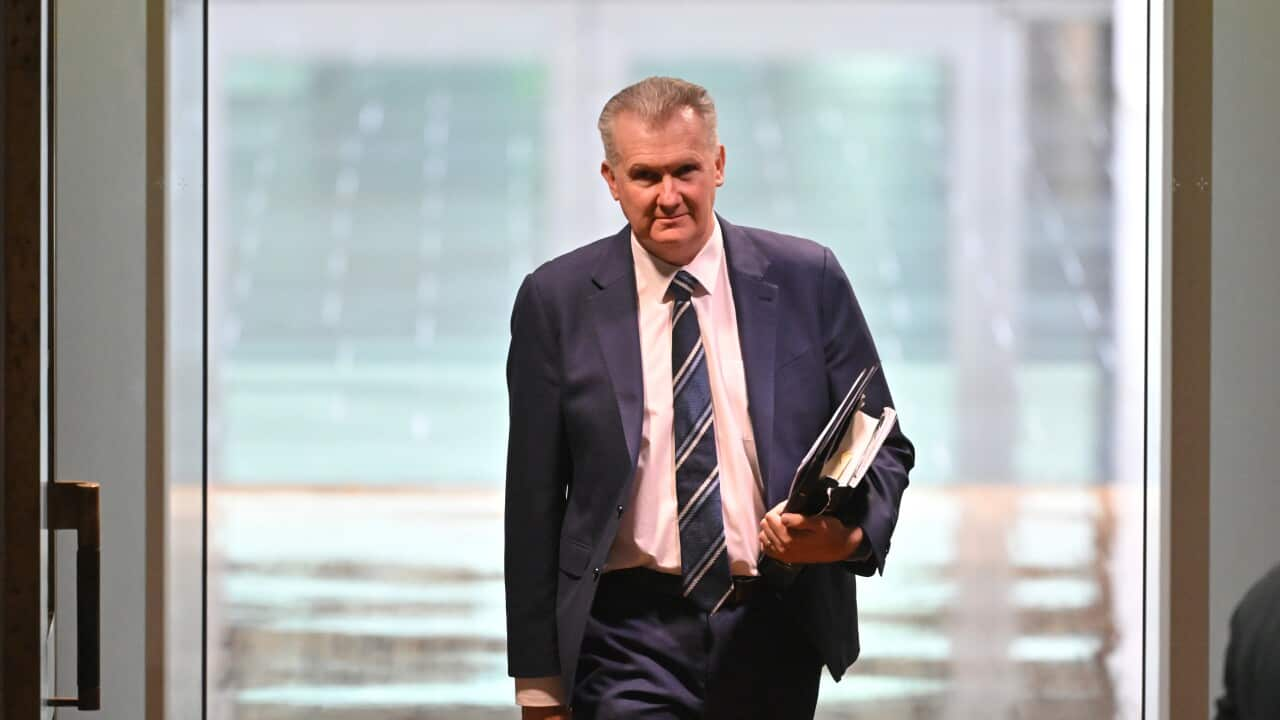TRANSCRIPT
“We as the community have carried the burden of supporting those families for almost a year now, and it's been really difficult.”
That's Rasha Abbas, Founder and Executive Director of the Palestine Australia Relief and Action group.
She's welcoming the government's move to offer humanitarian visas to some Palestinians who have fled the conflict in Gaza.
Home Affairs Minister Tony Burke confirms he has issued the first humanitarian visas to Palestinian families in Australia.
“Over the last few weeks, I've been dealing with some of the Palestinians on visitor visas who are here in Australia, some on visitor visas, some on bridging visas, and for some of the people who I've been meeting with, I've been transferring them onto humanitarian visas.”
Mr Burke says around a dozen Palestinian families have been offered humanitarian visas.
It's the first time that type of visa has been made available.
Up until now, those fleeing the conflict have only been able to access tourist and bridging visas.
Ms Abbas says what has been granted to the small number of families is the same as the visas offered to those fleeing Ukraine.
“The solution offered is similar to what was offered previously to other humanitarian intakes and refugees fleeing the war, like the Ukrainian intake. So it's a move to a 449, to start with, to allow the checks, and then moving them to the three year temporary visa, the 786.”
The visa allow them to work, study, access Medicare, and social services.
Palestinian advocates and community members have been calling for a humanitarian visa option to be established for almost a year.
But it's not a blanket offer - the Minister says he's personally met with every family offered the visa up to this point.
“If at some point we make a decision about the entire cohort as a government, then then you'd have a decision about the entire cohort. But at the moment, what we're doing is we're going case by case. They don't all have to be personal meetings with me, but so far, they have been.”
Greens Senator David Shoebridge welcomes some movement by the government, but he's criticising the case by case approach.
“Of course it's good that we have a handful of humanitarian visas granted. But the idea that they're only granted once you get an audience with Minister Burke, like he's some kind of medieval Lord that is handing out gifts. I mean, that is not how government should work. There needs to be a class wide response for those more than 1300 Palestinians in the country who all need the same rights.”
Ms Abbas says there will be a process in place for who will be prioritised for any further humanitarian visas.
“The department have the data for all the families that are here, and they look to start working through those families. There is an option for organizations like PARA and lawyers who are working with those families to put forward humanitarian cases that might be in more urgent need of the services like we have patients with cancer, sick kids, families, or like women who are here on their own with their kids that really don't have much of an option to work.”
But she hopes for a more permanent solution.
“While the families were relieved that they will get the support, they are still quite anxious, because it is a three year temporary visa, and they are not sure. What does it mean for them after three years, there is no option for those families to go back to Gaza at this stage, and because of that, the continued uncertainty is still having an impact on their well being.”
The Opposition did not respond to SBS's request for comment by the time of publication.













